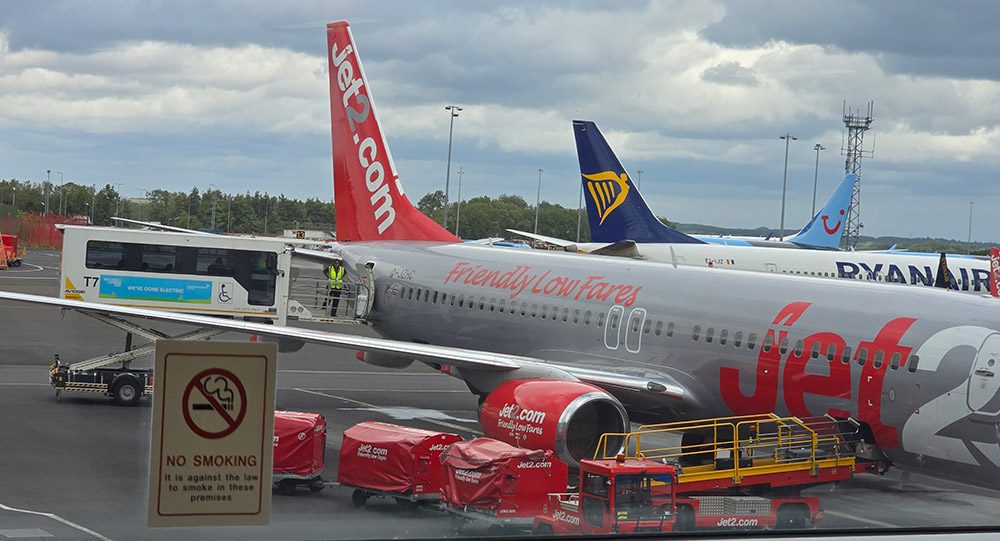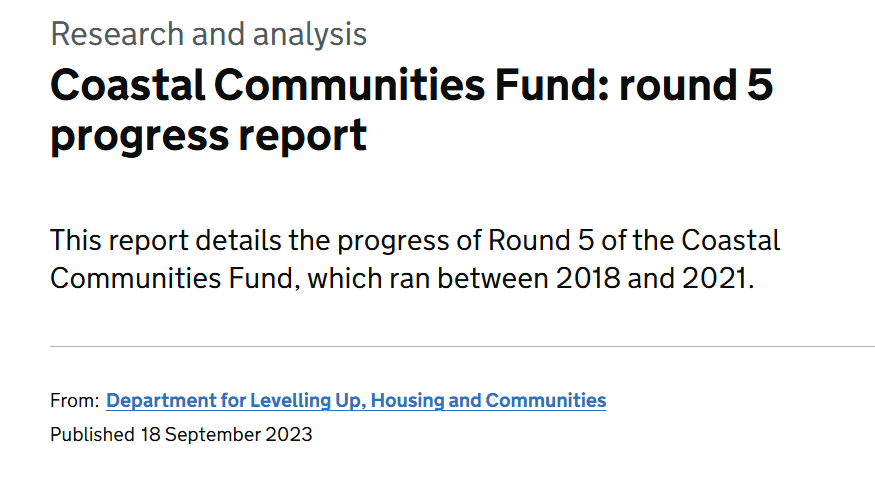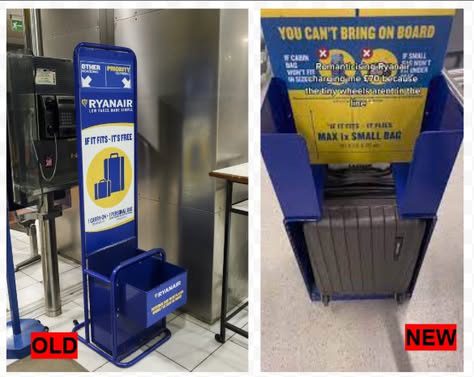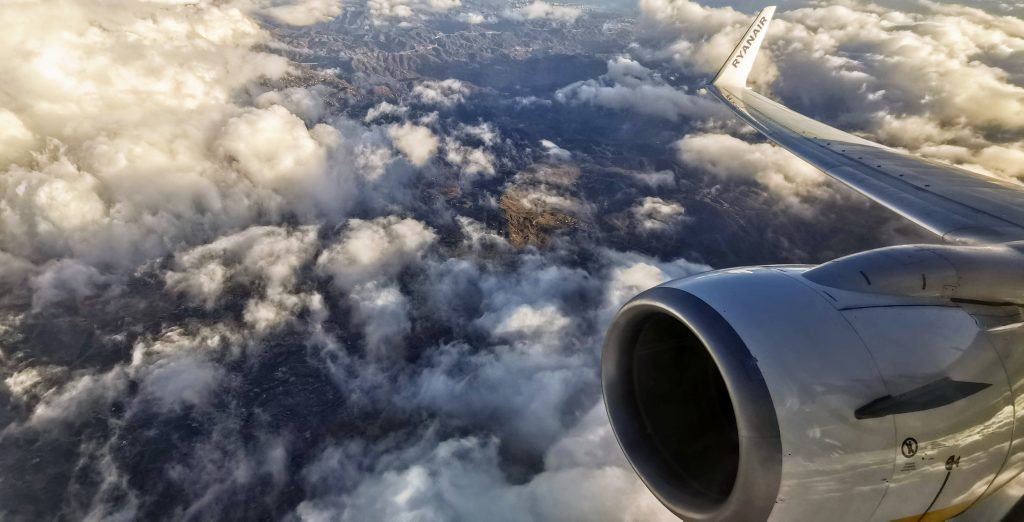IF there’s anything the British tabloids enjoy when they don’t have a Royal scandal or a celebrity downfall to report, it’s problems with airlines. Whether it’s baggage fees, squabbles over seating, or actual air disasters, reporters are ready to hit “upload”.
Take the recent Air India Flight 171 air crash: a tragic event in which 241 people lost their lives. Before investigators had even located the black boxes or issued a preliminary statement, self-appointed experts across the world – on traditional and social media – were offering their theories, sometimes with diagrams. Who needs facts when you have AI generators, Microsoft Flight Simulator, or just CapCut?
Hyped headlines about “air disasters”
For the last couple of years, UK tabloid headlines about aviation have been increasingly turbulent. Planes falling from the skies (allegedly); passengers screaming, fighting, toileting, and vomiting in the aisles; pilots collapsing mid-air – leaving the planes to fly themselves. Maybe the plane is “on fire”, necessitating an emergency landing (i.e. there was a smell of smoke on board). Air disasters can be concocted from just about anything that went wrong or off-plan!
If you’re a UK resident, wondering whether to swap Bognor for Benidorm, or a Spaniard switching León for ‘Londres’, you’re probably not alone. The reporter’s Spanish hairdresser recently admitted that recent headlines had scared her about flying – fuelling this article.

In the past few months, aviation coverage in British media has gone from drama and hype to hitting the red panic button (metaphorically speaking). Typical stories are: “‘Ex-French army general and couple die in horror crash as plane smashes into residential area minutes after takeoff‘; ‘At least 14 injured after skydiving plane crashes in ‘mass casualty incident’ & victims left ‘covered in jet fuel’‘; ‘Ryanair plane from UK CRASHES on runway wrecking wing moments after landing at holiday airport leaving Brits terrified’; and ‘Bomb threat panic on Air India flight from UK as jet forced to divert in latest air drama 11 days after Ahmedabad crash’.
And that’s just a small selection of coverage from ‘The Sun’. It is clearly designed to encourage clicks (that gain the publisher advertising revenue), as well as creating an air of awe and horror amongst the travelling public.
One Reddit r/aviation member says: “Air disasters have always made for good news stories but since the Boeing 737 Max issues, the media has really latched on to how easily they can capture people’s attention.” The Boeing situation could make for an article on its own.

Presenting old air disasters as new(s)
Many “news” stories are not recent. For example, the 2016 EgyptAir MS804 crash was dredged up and repurposed as if it just happened. Meanwhile, the Germanwings flight 9525 tragedy, where the plane was crashed (allegedly deliberately) by the pilot into the French Alps in 2015, is doing the rounds again. This is NOT NEWS. It is a decade long in the tooth! The fascination is morbid. The r/aviation member continues: “My guess is there aren’t enough current accidents that make for good headlines so they’re dipping into historical crashes.”
Go-arounds, in-flight diversions for technical issues (especially concerning Boeing planes), and emergency landings for any incidents (including medical emergencies) are rebranded as near-disasters. For those unfamiliar with the jargon, a “go-around” is aviation’s equivalent of a U-turn before landing, because the approach isn’t correct. This could happen, for example, if there’s something unsafe – such as strong winds surrounding the runway. However, in the hands of the tabloid press, it is generally upgraded to “panic on board as plane aborts landing at last second”.
To further muddy the skies, fake videos and AI-generated content are now rife. Microsoft Flight Simulator (and other simulator) clips of ‘abortive landings’, planes skimming rooftops, or ‘engine failure’ can be created to mislead viewers. Old videos can easily be edited and repurposed. This happened (distastefully) with videos claiming to show “the last moments in the cabin of Air India Flight 171”. However, the cabin depicted in one fake video was clearly from a different aircraft – a Ryanair flight in Romania where the cabin filled with smoke. What skanky behaviour!

Are there more air disasters than before?
As we learned at PR school, public perception often prevails over reality (as with Brexit). The British press – particularly the ‘Daily Mail’, ‘The Sun’, and their online counterparts – are well-versed in sensationalising any stories: including about “killer viruses” and “volcano-like heatwaves”. Their fascination with “air horror” has led some outlets to publish more sensible articles, such as the BBC – ‘Are Planes Crashing More Often’? This article points out that: “While polling on the subject is limited, one recent Associated Press survey suggested these startling images of accidents have had some impact on some US consumers’ confidence in flying”. You don’t say! What a surprise!
Worryingly, a 2023 study found that “Almost half the men surveyed thought they could land a passenger plane. Experts disagree”. This debate is still raging today.
Fortunately, you won’t be asked to land the plane! You’re unlikely to witness air disasters at first hand. Air travel is statistically the safest mode of transport today (with continual improvements made over the decades), followed by motorways, with bicycles having the highest accident and fatality rates. Motorbikes are also far riskier. Yes, this means that you’re more likely to have an accident en route to Málaga Airport than on the actual flight. A roundup of aviation crash statistics can be found here.
So, no, there are not more air disasters than ever before! The UK tabloid media wants you to think so – for reasons of its own.
Is the UK media trying to revive the staycation?
So, who is piloting this negative aviation news and rejuvenation of old air diasters? We can throw a few ideas on to the table….
Remember that ‘Great’ Britain – and its “tourist towns” – are still reeling from the rise of the package holiday, budget flights, and austerity measures from the government. Seaside towns suffer badly and Jaywick, in Essex, is the most deprived in the UK. Once popular with the masses, Blackpool also fares badly. According to the Office for National Statistics, male life expectancy in Blackpool is the lowest in England, and female life expectancy is also amongst the lowest. Meanwhile, unemployment rates are above the regional and national average.

While there’s no real evidence (not that we can find) linking – for example – UK political spin to editorial policy about aviation, media owners are arguably the same magnates who invest in UK infrastructure. News Corporation, which is majority-owned by Rupert Murdoch, owns several UK newspapers, including ‘The Sun’ and ‘The Times’. Murdoch is currently investing in real estate, including in the UK. He wanted to buy real estate portal, Rightmove, but was turned down – the last rebuff being in September 2024.
It doesn’t take the TInfoil Hat Brigade to see how “oligarchs” (sic), with broad property portfolios AND newspapers, could potentially benefit from a swing towards staycations / domestic tourism in the countries where they invest funds. Including the UK.
Also, the British government is currently investing in declining coastal towns. Some of the investment is in the maritime sector, some in clean energy, and there’s also a long-standing (since 2012) Coastal Communities Fund, which includes funds for promoting tourism in seaside towns. These are all facts.

Emphasising other unattractive elements of air travel
So, how do you nudge sun-seeking Brits into swapping their flights to Málaga for Morecambe Bay? Perhaps by gently scaring (sorry, we mean “persuading”) them into staying on the ‘terra firma’ – yes, the green pastures of historic ‘Inglaterra’.
The UK tabloids also delight in running endless reports that aren’t about air disasters, but are offputting about boarding flights. Popular themes include: Ryanair bag sizers catching unsuspecting passengers at the boarding gate (“even with our previously compliant cases”), squabbles over window seats, noisy children in the cabin, plus sized passengers not fitting into seats, and Swissport workers being paid 1.20 per unit by Easyjet for identifying non-compliant cabin bags.

None of this makes “budget” flights look remotely cheap or attractive, now does it? Maybe Lyme Regis isn’t such a bad idea, even though it lodated on Britain’s North Altantic coast? Helpfully, Conde Naste has recently recommended the “best English seaside towns” – making it easy to choose one.
The Green(wash) Herring
Net Zero initiatives add another layer to the situation. If aviation can be framed as risky and environmentally irresponsible, taxing passengers for flying appears more palatable as a policy option.
One member of a Facebook forum located near Spain’s Granada says she won’t fly because of her “carbon footprint”. The message is clearly working.
Ryanair is about to disband flights to and from Denmark, closing its Billund base and cutting Aalborg routes. This is because of a new Danish aviation tax, introduced in January 2025, of approximately €6.70 per passenger. Ryanair says this tax makes Denmark “hopelessly uncompetitive” – compared to countries like Sweden, Hungary, and Italy, where aviation taxes are being removed. Ahem! While O’Leary runs his mouth off about taxes, maybe he could examine his own company’s fees for passengers? This is unlikely anytime soon.
All things considered, it’s arguably easier for a government to place a small tax on passenger flights than to enforce incoming environmental laws. These include LEZs, energy efficiency rules for properties (requiring expensive building works), and other initiatives that are obviously costly to individuals and clear vote-losers.
Is the whole narrative “Greenwashing”? Perhaps. Or maybe it’s just “nudge theory”. For example: make people feel vaguely guilty about flying, then offer them a guilt-free alternative – preferably without leaving their own country! We’re not saying it is wrong to reduce C02 emissions. But by using underhand tactics? Questionable.
Recent comments from Pieter Elbers, CEO of IndiGo Airlines, hint at these pressures. He warned that over-regulation and anti-aviation sentiment in Europe could damage connectivity and economic growth, especially for working-class travellers. This demographic (i.e low income) is also hit hardest by initiatives such as LEZs that ban older vehicles from certain zones. Not everyone can afford a new electric car. Or a more expensive flight.
Some Spanish tourist resorts don’t want Brits landing en masse….
The UK isn’t the only country showing signs of travel-related fatigue. Across Spain, particularly in hotspots such as Mallorca and Barcelona, anti-tourist graffiti, local protests, and government crackdowns on illegal holiday rentals (or any tourist rentals, in some municipalities) have become increasingly visible. The message is simple: it is no longer a free-for-all re mass tourism.
Spanish authorities, while not wanting to damage the lucrative hospitality sector, are clearly feeling the strain of these mass invasions. Rental prices are surging, local residents are priced out of the market (a scenario not helped by the unpopular ‘Okupa’ laws), and beach resorts are sick (pardon the pun) of drunken guests. The resulting backlash is making international headlines. Rather helpfully, this is also reinforcing the idea of having a quiet staycation.
Whether it’s the vomit-inducing fumes in an aircraft cabin, or people actually vomiting outside a bar at destination – while locals wave placards telling you to go away – the message is the same: perhaps you’d be better off at home?
Turbulence ahead
OK, we accept that even this article is “the media”, and is adding to the “noise”. We also accept that there’s no firm evidence of a conspiracy against international travel. South of Granada doesn’t support the promotion of conspiracy theories in general. However, there is a conspicuous harmony between government policy, media tone, and the reshaping of public attitudes towards air travel by using air disasters as bait. The decline in popularity of short-haul flights from the UK would be a win-win for ministers keen to meet climate pledges, a boost to beleaguered seaside towns, and helpful in placating overburdened Mediterranean resorts moaning about the influx of badly behaved Brits.
As always, the losers are ordinary people: the single mum dreaming of taking the kids to Spain without a new bank loan, the newlyweds whose honeymoon is downgraded from Barcelona to Bognor Regis, and the cabin crew being asked “do plane doors really open mid-flight and suck all the passengers out”?
The ‘neggy vibes’ rowards air travel could potentially mean a hidden agenda, although there are simpler explanations. For example, media outlets want clickbait to earn money, and “air disaster” stories serve this purpose. Also, we’re now in “high season”, making airline (and airport) stories more relevant to the news cycle. Even if some of the content is regurgitated carelessly from 2015, travel themes are in vogue during summer months, and many readers won’t notice the earlier date stamp.
It pays to be aware of media spin and to view different sources for their angle on the same story. So, next time you see ‘The Sun’ banging on about “another life-threatening Boeing incident”, ask yourself: is this real turbulence, or just narrative headwind designed to send Brits flocking back to Bournemouth?

Where to source reliable aviation information
If you’re looking for trustworthy aviation information, steer clear of Reddit’s r/travel (where the loudest voices are often the least informed) and instead check:
- Mentour Pilot – A calm, measured take from an actual airline pilot and trainer who flies Boeing for Ryanair. He lives in Spain.
- Simple Flying – News coverage with context and actual expertise.
- The Aviation Herald – Detailed, technical reports of real incidents.
- Eurocontrol – For serious airspace policy and traffic data.
- Skyscanner – View realtime flight paths and information.
